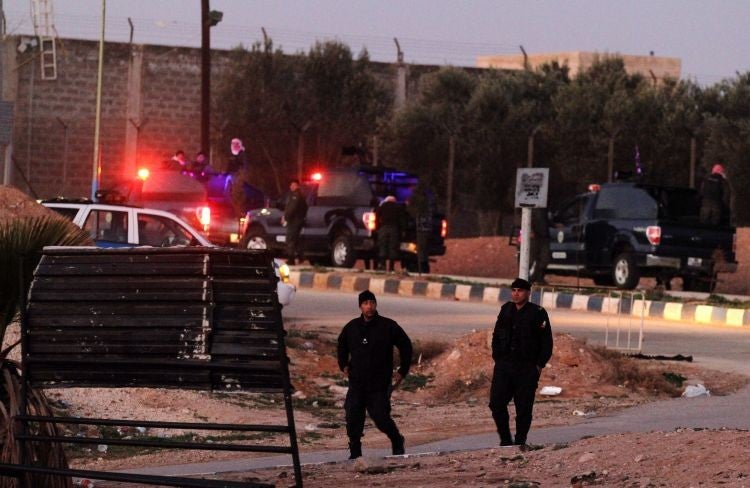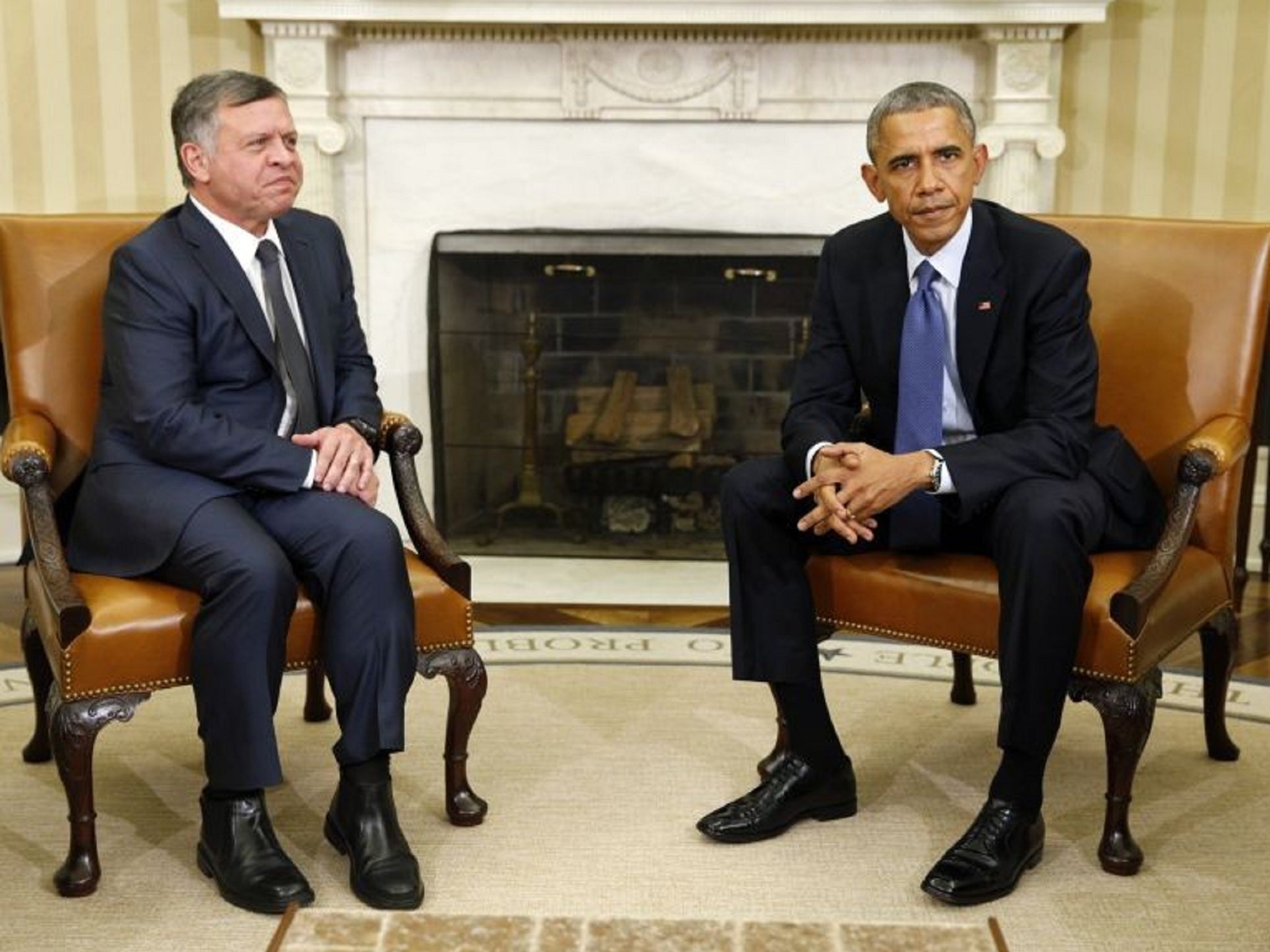Muath al-Kasaesbeh video: In the midst of Isis atrocities, revenge is an inescapable urge – but it can never lead to good
We need to hold on to stories of forgiveness and human resilience

Your support helps us to tell the story
From reproductive rights to climate change to Big Tech, The Independent is on the ground when the story is developing. Whether it's investigating the financials of Elon Musk's pro-Trump PAC or producing our latest documentary, 'The A Word', which shines a light on the American women fighting for reproductive rights, we know how important it is to parse out the facts from the messaging.
At such a critical moment in US history, we need reporters on the ground. Your donation allows us to keep sending journalists to speak to both sides of the story.
The Independent is trusted by Americans across the entire political spectrum. And unlike many other quality news outlets, we choose not to lock Americans out of our reporting and analysis with paywalls. We believe quality journalism should be available to everyone, paid for by those who can afford it.
Your support makes all the difference.It was all too predictable, but all too understandable too. Just as news of the horrific murder of pilot Moaz al-Kasasbeh was announced, Jordan vowed an “earth-shattering” punishment for ISIS’s latest execution. And indeed revenge came swiftly, just a few hours later, when two convicted Jihadists were hanged at dawn.
Chatting with a friend, who happens to be a Buddhist, shortly after hearing the news of Jordan’s executions he admitted, “I feel very un-Buddhist”. He meant that he had appreciated Jordan’s desire for revenge, and could, at least now in the heat of the bitter aftermath, see no other solution. He said the horror of Lt Kasabeh being burnt alive had upset him more than any of Isis’s previous barbaric acts. It seems we may have become inured to the beheadings, and now this most extreme of radical Islamist organisations has come up with something to sicken us even more.
I have worked in the field of forgiveness, reconciliation and peacebuilding for the past 11 years but I can still understand – and sometimes feel – the lure of revenge. It satisfies an immediate yearning to avenge a wrongdoing, to balance things out. As Sister Helen Prejean said, relating to her work on the death penalty, “Anger is a moral response to injustice”, and revenge stems from anger.
And yet in the cold light of day the evidence shows that revenge rarely works. The Greek tragedies are full of the curse and the poison of revenge as it invades memory, wrecks individuals and destroys the fabric of society. Grievances inherited across generations keep communities stuck in the pain of the past, locked to their ancient hatreds.
These days we see revenge being meted out all around us – in personal lives as well as on the world stage. We see it not just in Isis avenging Sunni injustices, but in honour killings, parents murdering their children to avenge a former partner, revenge posts on social media, and even in state-sponsored revenge such as Barack Obama and Hilary Clinton watching a live transmission of Osama Bin Laden’s execution.

The author of Beyond Revenge, professor of psychology Michael McCulloch, believes we are hard-wired to feel revenge and that it is a normal part of human nature. He says, “The desire for revenge does not come from some sick dark part of how our minds operate, it is a craving to solve a problem and accomplish a goal”. His argument is that in primitive cultures – pre governments, states and law enforcement agencies - people needed to holler from the other side of the hill to tell their enemy not to mess with them. It kept the balance and protected property. But now, he says, we live in more civilized times and if you give people tools to reconcile then societies rebuild themselves.
Isis are not ready to reconcile and may never be, and yet I am sure that revenge tactics will not work either. During Tuesday evening’s edition of Newsnight, Emily Maitlis challenged Jordan's General Ali Shukri saying that people may regard his country’s response to Isis as “eye-for-an-eye politics”. The general responded by saying. “How do you talk to an organisation that has sown terror all over the world …You can’t be civilized with uncivilized people.”
And that’s the challenge. You can’t talk to Isis, so what do you do in the meantime – take revenge or sit ineffectually on the moral high ground? There are no easy answers and clearly reconciliation, dialogue, and peacebuilding – let alone forgiveness – are a long way off. It will take until people get tired of the endless bloodshed and sick of the lack of progress (because revenge keeps you trapped in a cycle) for something to shift. But shift it must – otherwise fear may make a monster of any of us.
In The Lucifer Effect: Understanding How Good People Turn Evil, Philip Zimbardo writes: “With public fear notched up and the enemy threat imminent, reasonable people act irrationally, independent people act in mindless conformity, and peaceful people act as warriors.” The German philosopher, Friedrich Nietzsche, put it even more bluntly when he warned that “he who fights with monsters should be careful lest he thereby become a monster”.
We need to hold on to stories of forgiveness and human resilience to remind us that there is another and more effective way of dealing with violence and trauma. There are some shining examples in the actions of Nelson Mandela and Malala Yousafzai, for example, but also in more ordinary stories that arise from time to time and fuel the public imagination with hope. For instance, last year when a convicted murderer in Iran was saved from a public hanging by the mother of his victim, who slapped him around the face and removed the noose from his neck. Such healing narratives are important for us to hear, not only because personal transformation may eventually lead to societal change but also because in these chillingly vengeful times they demonstrate a way out of the cycle.
‘The Forgiveness Project: Stories for a vengeful Age’ by Marina Cantacuzino is published by Jessica Kingsley Publishers on 26 March
Join our commenting forum
Join thought-provoking conversations, follow other Independent readers and see their replies
Comments